Register
Registration is now open!
The deadline for pre-registration Wed Oct 15, 5pm. After that date you can still register, but you will not be guaranteed a printed nametag.
All registration (even on-site) takes place though Eventbrite.
Fall 2025 SoCal-Nev Section Meeting
CSU Fullerton, Fullerton, CA
Steven G. Mihaylo Hall (SGMH)
Saturday, October 18, 2025, 8:30am - 5:00pm
(Directions and Map)
Wi-Fi
CSUF Instructions for guest wireless accessSchedule
(pdf of full program and Abstracts)- 8:30-11:30 Registration
Mihaylo Hall Central Plaza - 9:00-9:05 Welcome Remarks
Mihaylo Hall, SGMH 1502 - 9:05-9:45 Invited Address by Francis Bonahon, University of Southern California and Michigan State University
Miraculous cancellations for quantum matrices
Mihaylo Hall, SGMH 1502 - 9:50-10:20 Section Business Meeting: for all section members and attendees
Mihaylo Hall, SGMH 1502 - 10:20-10:30 Break
- 10:30-11:10 Invited Address by Jessica Jaynes, California State University, Fullerton
The POWER of Data Science: Passion, Obstacles, Willingness, Endurance, and Respect in Building Pathways for the Next Generation
Mihaylo Hall, SGMH 1502 - 11:10-11:20 Break
- 11:25-12:25
Faculty and Student Contributed Paper Session>
(Contributed Paper Abstracts with time and rooms)
Mihaylo Hall classrooms - 12:25-2:05 Lunch and activities
- 12:25-12:45 Pre-ordered boxed lunches can be picked up near registration
- 12:25-2:05 Icosahedron Build with Glen Whitney, Studio Infinity
Mihaylo Hall External Plaza (near Carl's Jr) - 1:30-2:00 Section NExT workshop on assessment facilitated by Anna Aboud, Westmont College
SGMH 1112
- 2:05-2:45 Invited Address by Brian P Katz (BK), California State University, Long Beach
Teaching Proofs as a Way of Knowing
Mihaylo Hall, SGMH 1502- Brian P Katz (BK) is the most recent recipient of the MAA Southern California-Nevada Section Award for Distinguished College or University Teaching of Mathematics
- 2:45-2:50 Conference photo
- 2:50-3:00 Break
- 3:00-3:50 Invited Address by Ami Radunskaya, Pomona College
Math and the Mind
Mihaylo Hall, SGMH 1502 - 3:50-4:50 Student Poster Session (Poster Abstracts) and 100th Anniversay Celebration Cake
Mihaylo Hall Central Plaza - 4:50-5:00 Closing Remarks
Mihaylo Hall, SGMH 1502
Directions, Maps and Parking
The Section Meeting will be held in the Steven G. Mihaylo Hall on the corner of Nutwood Ave. and Falino Dr. on the CSU Fullerton Campus: Interactive Campus Map.
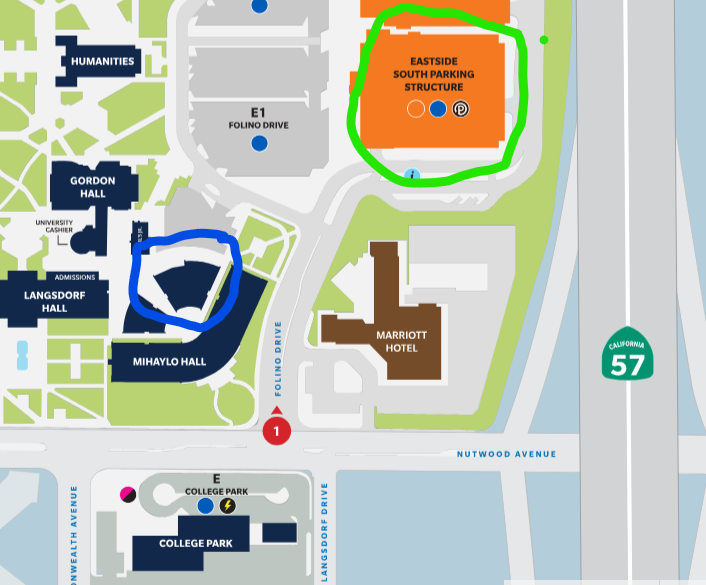
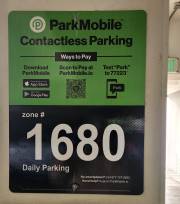
All-day parking is available in the Eastside South Parking Structure on Level 2 and above (Zone 1680). The aisles on each floor closest to the meeting are the A, B, or C aisles.
A parking permit is needed to park on campus. The weekend day permit is $6 and can be purchased through the ParkMobile platform. Posted in the Parking Structure are signs with the Zone number (Zone 1680) and instructions with options to pay, including using the ParkMobile app, a QR code, texting , or a phone number for those without a smart phone. Remember: Park in zone 1680--look for the 1680 signs.
Registration Information
All registrations will take place through Eventbrite.
Contributed Paper Presenters: Application deadline to present is Wed September 24, at 5pm. Presenters need to register separately for the conference in addition to submitting an abstract. You must be registered to present.
Student Poster Presenter: Application deadline to present is Mon Oct 6, at 5pm. Poster presenters need to register separately for theconference in addition to submitting an abstract. You must be registered to present.
Priority Registration+ Lunch option: register by Fri Oct 10 at 5pm for a lower registration rate, as well as a printed nametag and registration packet. Registering by the priority deadline enables you to add on a lunch to your order. It also minimizes stress and helps us have a more accurate catering count.
Online Pre-Registration (lunch option no longer available): After 10/10 at 5pm, you can still register, but there is no early bird discount or lunch option. If you register by Wed Oct 16 at 5pm, it guarantees a printed nametag and registration packet and helps us with planning.
Last Minute Registration All registration is completed online. You can register on-site, but it will be through the online platform and require an online payment method. Your nametag is not pre-printed and a registration packet is not guaranteed. There is no option to order lunch.
Registration Fees
| Registration type | Priority Registration |
Online and Last Minute Registration 10/10 5pm through 10/18 |
| Nonmember | $40 (+$20 Lunch option) |
$45 |
| MAA Member | $30 (+$20 Lunch option) |
$35 |
| Student | $20 (+ $20 Lunch option) |
$25 |
| Presenter: Contributed Paper or Poster Session | $15 (+ $20 Lunch option) |
$25 |
Questions about registration
Questions about registration can be directed to Karrolyne Fogel, the meeting coordinator.
Lunch Options
If you pre-register by 5pm on 10/10, you can order a box lunch to pick up at the conference site. We offer the following box lunch choices provided by Corner Bakery.
- UPTOWN TURKEY AVOCADO Sandwich: oven-roasted turkey, bacon, avocado, lettuce, tomato, mayonnaise on harvest bread. Served with chips, fruit, cookie, and water.
- Gluten-light UPTOWN TURKEY AVOCADO Sandwich option (not guaranteed to be 100% gluten-free). Served on gluten free bread. Served with potato chips, fruit, carrot sticks, and water.
- VEGAN DELIGHT Sandwich: Avocado, arugula, tomato, cucumber, roasted red pepper, balsamic vinaigrette on focaccia roll. Served with chips, fruit, cookie, and water.
- CHICKEN CAESAR Salad: romaine, grilled chicken, Parmesan, house-made croutons, Caesar dressing. Served with a cookie, freshly baked bread, and water.
- Gluten-light CHICKEN CAESAR Salad (not guaranteed to be 100% gluten-free): romaine, grilled chicken, Parmesan, Caesar dressing. Served with a carrot sticks, Gluten-Free bread, and water.
- HARVEST Salad: mixed greens, grilled chicken, sweet crisps, bleu cheese, walnuts, apple, dried cranberries, balsamic vinaigrette. Served with a cookie, freshly baked bread, and water.
Attendees are also welcome to bring their lunch and eat outside near the conference site.
There are also several local restaurants nearby on Nutwood Ave.
Anna AboudWestmont College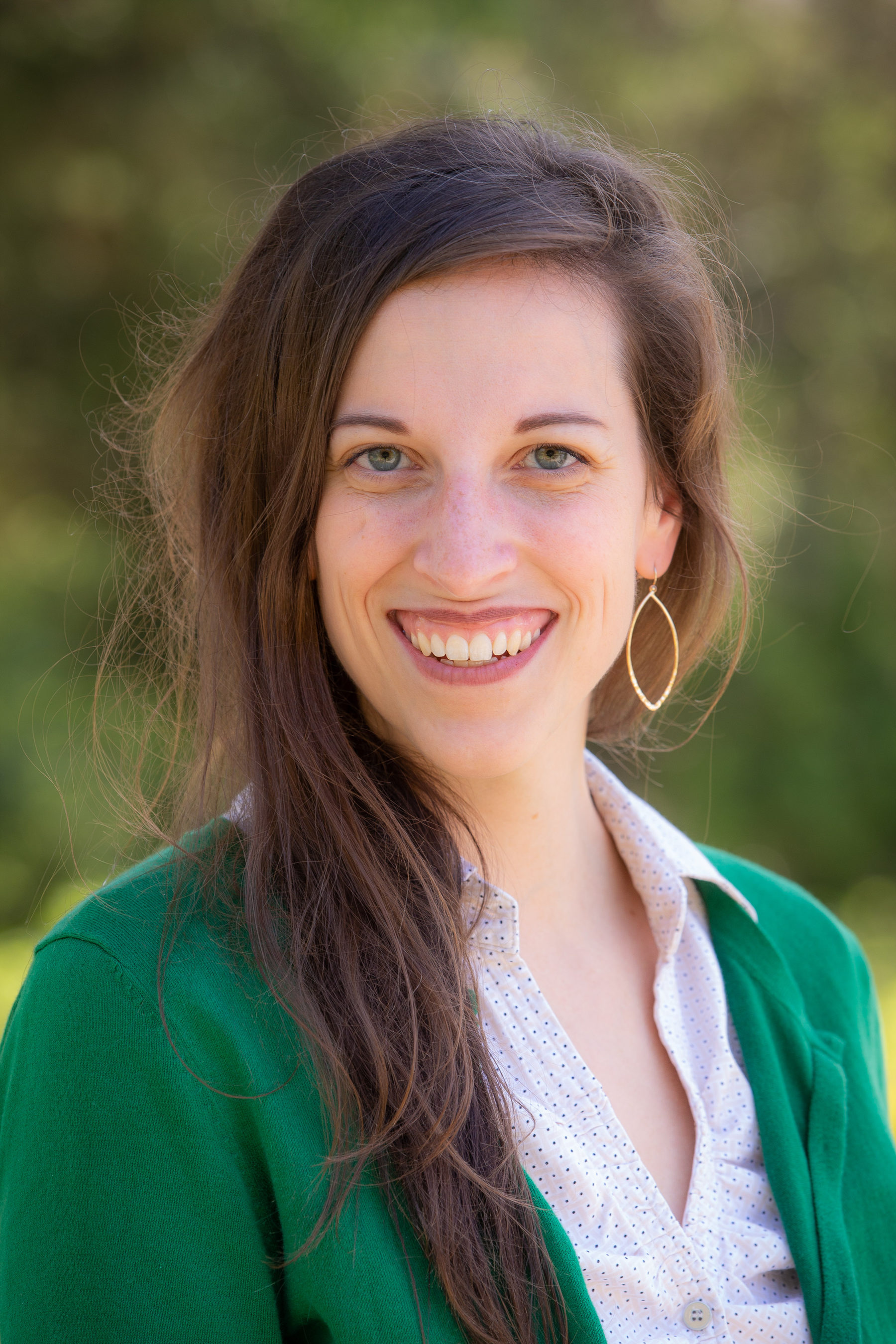
|
Dr. Anna Aboud (Project NExT Brown ’20) is an associate professor of mathematics at Westmont College in Santa Barbara, CA. With degrees in mathematics and mathematics education, Dr. Aboud has experience teaching math in the K-12 classroom, as well as at community college, research institutions, and primarily undergraduate institutions. These varied experiences have given Dr. Aboud a deep and nuanced perspective on mathematics education. Dr. Aboud enjoys investigating and implementing learning structures which promote strong conceptual understandings of mathematics, and she prioritizes strategies which foster a sense of connection and belonging within the mathematics classroom. |
Section NExT Workshop
Anna Aboud will facilitate an interactive discussion about diverse assessment types that effectively measure student learning while simultaneously providing incentive and opportunity for students to hone their mathematical communication skills. Among other assessment types, we will discuss oral exams, meta-cognitive reflections, and community engagement activities.
Francis BonahonUniv Southern California/Michigan State Univ. 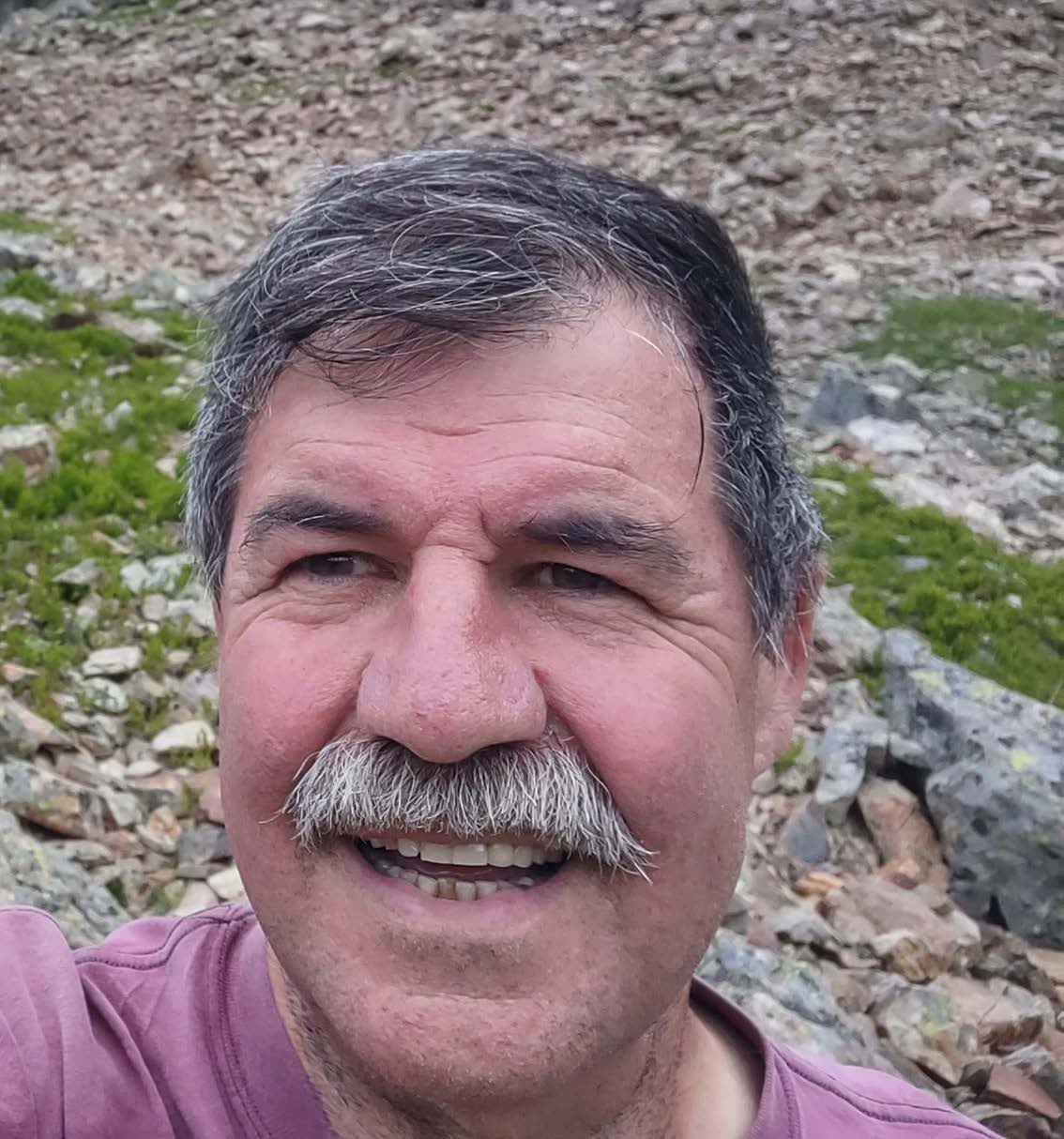
|
Francis Bonahon taught for 35 years at the University of Southern California, during which time he was a proud and active member of the SoCal-Nevada Section of the MAA. He is very pleased and honored to be invited to this celebration of the centennial of the Section. He retired from USC, but not from mathematics, in 2021 and now lives in Michigan, where he holds a courtesy appointment at Michigan State University. He misses hiking in the San Gabriel Mountains, but now has the opportunity to cross-country ski from his backyard in winter. |
Miraculous cancellations for quantum matrices
Quantum matrices are matrices whose entries do not commute with each other, but “almost” commute in a sense controlled by a complex number q. They occur in many mathematical contexts, for instance in the construction of invariants used to prove that two knotted curves in space cannot be deformed to each other. Motivated by these applications, I will describe unexpected simplifications that occur in powers of quantum matrices when the quantum parameter q is a root of unity. This is analogous to the famous Frobenius relation that (x+y)^n = x^n + y^n, frowned upon in a (pre)calculus class but valid in a ring of prime characteristic n. The talk will only require basic notions of linear algebra.
Jessica JaynesCSU Fullerton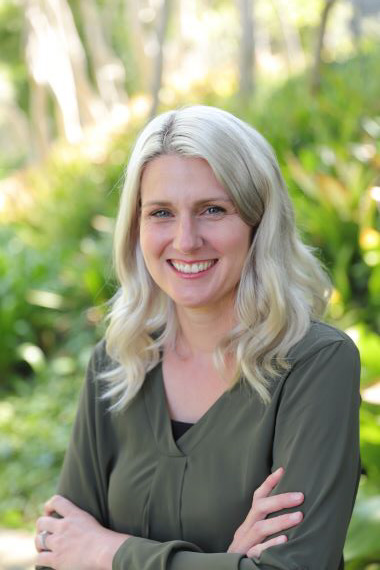 |
Dr. Jessica Jaynes is a Professor of Mathematics and Statistics at California State University, Fullerton, and Director of the Titan Supercomputing Center. A first-generation college graduate, she earned her Ph.D. in Statistics from UCLA and has devoted her career to advancing both the practice and teaching of statistics and data science. Her leadership spans several transformative initiatives. She co-directed the NSF SoCal Data Science Program, engaging over 90 students in industry-partnered research projects, and is Principal Investigator of Project PIPE-LINE, a California Learning Lab Grand Challenge initiative creating equitable pathways and new degree programs in data science. She also serves as Program Coordinator for the NIH EAGER Program, which immerses undergraduates in genomics, computational biology, and bioinformatics alongside world-class researchers at UC Berkeley. Beyond higher education, Dr. Jaynes helped launch Project IDEEM, empowering K–5 teachers to bring data literacy into their classrooms. Her work reflects a deep commitment to opening doors for students and faculty, inspiring them to pursue innovation, and building diverse communities in data science. |
The POWER of Data Science: Passion, Obstacles, Willingness, Endurance, and Respect in Building Pathways for the Next Generation
The story of developing data science education is one of POWER—Passion, Obstacles, Willingness, Endurance, and Respect. This theme captures both the challenges and opportunities of building accessible pathways for students to thrive in an increasingly data-driven world.
This talk explores the POWER of building sustainable pathways into data science through Passion for innovative teaching, confronting Obstacles in curriculum design, showing Willingness to collaborate across institutions and disciplines, demonstrating Endurance in sustaining large-scale initiatives, and maintaining Respect for learners at every level.
Highlights include the development of introductory data science courses, cross-campus and industry-partnered programs, statewide efforts to create data science pathways, and outreach that extends into K–12 education. Together, these initiatives reflect how embracing POWER can transform statistics and data science education, fostering collaboration “one dataset at a time,” and prepare a generation of students to thrive in a data-driven future
Brian P Katz (BK)CSU Long Beach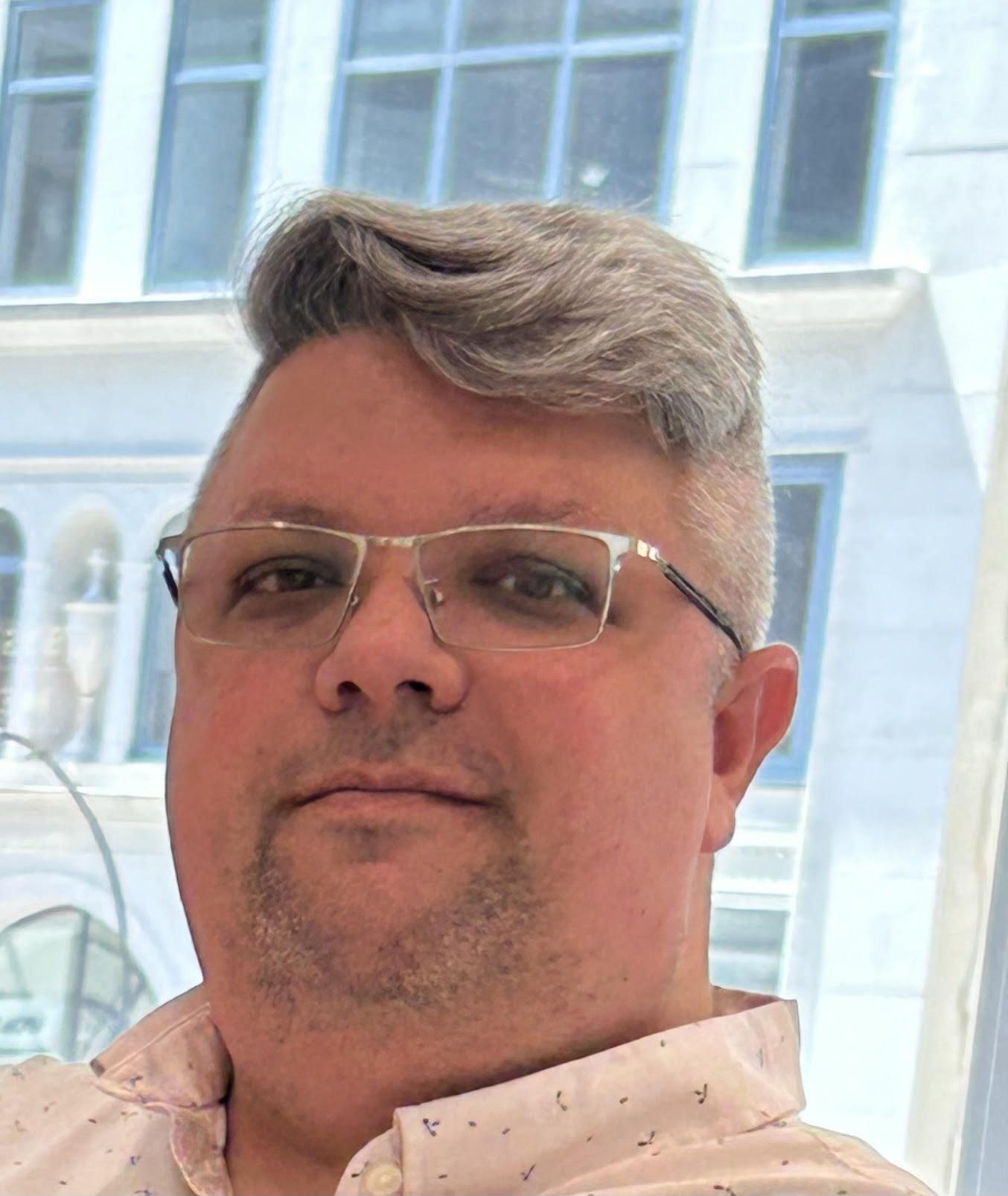 |
Brian P Katz (BK) is faculty in Mathematics Education and coordinator of the single subject mathematics credential at CSULB. BK is passionate about interactions between inquiry, epistemology, identity, authority, and justice as both a scholar and teacher, especially in the context of preparing teachers to lead student-centered and rehumanizing classrooms of their own. BK is Associate and Communications Editor with PRIMUS, a former Chair of IBL SIGMAA and the SoCal-NV Section of the MAA, a current member of the executive board of SIGMAA RUME, an MAA textbook author, an Editor of the inclusion/exclusion blog, and an Associate Director of Project NExT. BK supports two of the best cats in the world and loves to sing. |
Teaching Proofs as a Way of Knowing
A central thread in my professional work is the need to teach mathematical proof as a way of knowing: a human endeavor, done by humans, with human tools, in human sociocultural/political contexts, for the human purpose of understanding our experiences. In this session, we will discuss some of the ways I try to meet this need as a practitioner and researcher and why I think it is so important for society and our students.
Ami RadunskayaPomona College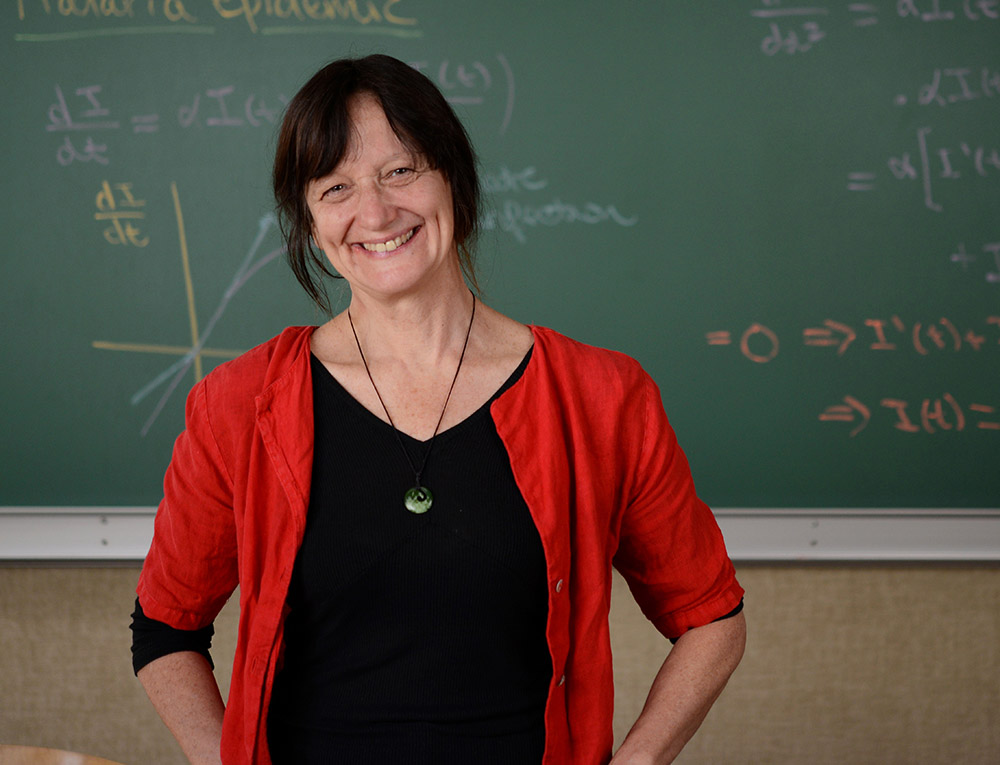 |
A California native, Professor Ami Radunskaya received her Ph.D. in Mathematics from Stanford University. She has been a faculty member in the Math Department at Pomona College since 1994. In her research, she specializes in ergodic theory, dynamical systems, and applications to various "real-world" problems. Some current research projects involve mathematical models of cancer immunotherapy, developing strategies for targeted drug delivery to the brain, and studying stochastic perturbations of dynamical systems. Professor Radunskaya believes strongly in the power of collaboration and that everyone can learn to enjoy mathematics; as President of the Association of Women in Mathematics, she encouraged collaborative research, international outreach and cooperation between all the mathematical societies. She is the President of the EDGE (Enhancing Diversity in Graduate Education) Foundation, whose summer program won a "Mathematics Program that Makes a Difference" award from the American Mathematics Society in 2007, and a Presidential Award for Excellence in Science, Mathematics and Engineering Mentoring (PAESMEM) in 2017. Professor Radunskaya is a 2021 Fellow of the Association for Women in Mathematics, a Fellow of the American Math Society, and she is the recipient of several awards, including a WIG teaching award in 2012, the 2017 AAAS Mentor award, and the 2020 Intercollegiate Biomathematics Alliance Distinguished Senior Fellowship. She was featured in the documentary, “The Empowerment Project: ordinary women doing extraordinary things”, as well as in the 2020 book: “Power in Numbers: the Rebel Women of Mathematics”. |
Math and the Mind
There has been a lot of noise about algorithms that can think and be creative, but we are still a long way from understanding how to model the human brain, much less the human spirit. In this talk I will describe three current projects that consider mathematical models of the human brain from different perspectives. in one project, we develop mathematical models and optimal strategies to deliver dopamine agonists, the ``happy hormone”, to the brain at just the right time and in just the right place. In another project, we develop a model to understand the well-known but poorly understood ``gut-brain connection”. For example, did you know that the gut has its own set of neurons that comprise the ``enteric nervous system”, sometimes called the ``brain in your gut”? We study the links between this brain and the one in our heads, and how the two work together to affect everything from our mood to our sleep. And then, on a more light-hearted note, I will describe a project that uses real-time brain waves to understand how we respond to music.
Glen WhitneyStudio Infinity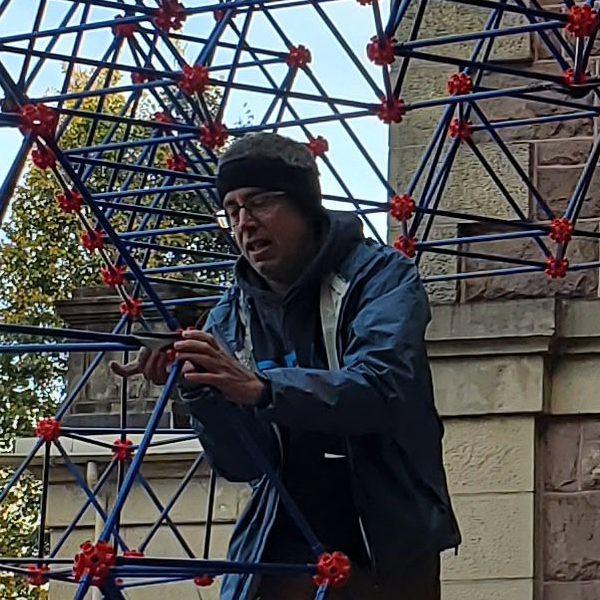 |
Glen’s loathing of math transformed into love at the Ross Program, a love which has played a central role in every chapter of his career: assistant professor, quantitative analyst, founder of the National Museum of Mathematics, and principal of Studio Infinity. He’s also proud to serve as the Problem Warden of the Prison Mathematics Project. |
Icosahedron Build
Add your contribution to the building of a celebratory 8-10ft icosahedron, decorated to resemble the MAA Logo (as much as possible). Organized and led by Glen Whitney and Studio Infinity, you have the chance to help construct this participatory mathematical art installation!
Contributed Paper Session Accepting Applications
for Fall 2025 Section Meeting at CSU Fullerton
The deadline to apply to the present in the Contributed Paper Session has passed. We are no longer accepting applications.
You are invited to submit abstracts for the Contributed Paper Session of the Fall 2025 Section Meeting of the MAA, taking place on Saturday, October 18, 2025 at CSU Fullerton. The talks will take place in either the late morning or the early afternoon and will each be 15 minutes with a 5-minute question and transition period.
These sessions accept contributions in all areas of mathematics, including research and pedagogy, and all complete proposals will be considered. The selection of talks will be based on interest to the expected audience, on common themes with other submissions, and on scheduling constraints.
Applications to present in the contributed paper session are submitted online. and are due by 5pm on Wednesday September 24, 2025. Applications include submitting an abstract (max 180 words) preferably using the specified LaTex template given in the example below. Only the items between \begin{document} and \end{document} need to be submitted.
\documentclass{article}
\newcommand{\presenter}[1]{\par\textbf{Presenter(s):}\ #1}
\newcommand{\others}[1]{\par\textbf{Other Author(s):}\ #1}
\renewcommand{\title}[1]{\par\textbf{Title:}\ #1}
\renewcommand{\abstract}[1]{\par\textbf{Abstract:}\ #1}
\newcommand{\theme}[1]{\par\textbf{Talk theme(s):}\ #1}
\newcommand{\audience}[1]{\par\textbf{Audience:}\ #1}\begin{document}
\presenter{Esteban Ayala, Evelyne Knight, and Chloe Marple, Pomona College}
\others{Research advisor: Dr. Konrad Aguilar, Pomona College} %if applicable
\title{Contractivity of Quantum Channels with respect to Quantum State Induced Norms}
\abstract{Quantum Channels (QCs) are used to send quantum information in the form of quantum states and are major objects of interest in Quantum Information Theory and Quantum Computing. Some desirable QCs are non-expansive, meaning they don’t add superfluous information, or “noise,” to the quantum information. This noise can be detected using various metrics, functions which quantify a notion of distance. One specific metric we use is the Bures metric. While it is known that a given QC is Bures-nonexpansive, our study seeks to classify Bures-contractive QCs and estimate their Lipschitz constants. Another way to measure distance between matrices is using norms. We have classified several specific QCs as contractive with respect to the 1-,2-, and infinity-operator norms. We also generated matrix norms using quantum states and found sharp two-sided norm equivalence constants for them, which were computationally tested. A key application of our work is the ability to detect contractivity of QCs with respect to new norms of interest by utilizing our work with these well-established norms and our newfound equivalence constants.}
\theme{Analysis}
%Choices include Education/Pedagogy, History/Philosophy of Mathematics, Interdisciplinary Topics, Probability/Statistics, Geometry, Analysis, Number Theory, Graph Theory/Combinatorics, Algebra, Applied Mathematics, Topology, Linear Algebra, etc.
\audience{Linear Algebra (some analysis knowledge will help)}\end{document}
Need access to latex to see if your abstract compiles? Overleaf.com is a cloud based latex program with a free registration. There are other options as well.
The application to present DOES NOT constitute registration for the conference. Presenters will be notified of their acceptances by Monday October 6, 2025. Once registration for the conference opens, presenters should register for the meeting online before the conference by Friday October 10, 2025 at 5pm.
Direct questions to the Program Board: Bahar Acu (Bahar_Acu@pitzer.edu), Amelia Stone-Johnstone (astonejohnstone@Fullerton.edu), and Christina Edlholm (CEdholm@Scrippscollege.edu)
Student Poster Session Fall 2025 --Call for submissions
Students (undergraduate and graduate) are invited to submit short proposals for the Poster Session of the Fall 2025 Section Meeting of the MAA, taking place on Saturday, October 18 at CSU Fullerton.
Here are some ideas of what students can present:
- Results of masters thesis, honors, senior, or independent study projects
- Results of classroom projects or modeling contests
- Results of REUs or other summer research programs
- Historical investigations in pure or applied mathematics
- Solutions of problems from the Putnam Exam or from the Monthly or other journals
Applications to present in the poster session are submitted online. Applications include submitting an abstract (max 150 words) and are due by 5pm on Mon October 6, 2025.
The application to present DOES NOT constitute registration for the conference. Once registration for the conference opens, presenters should register for the meeting online before the conference by Friday October 10, 2025 at 5pm.
The MAA Mathematical Communication website has useful articles about giving an effective talk, including poster presentations (scroll down to that heading) and also writing an abstract. Be sure to check out their helpful tips!
Direct questions to the Program Board: Bahar Acu (Bahar_Acu@pitzer.edu), Amelia Stone-Johnstone (astonejohnstone@Fullerton.edu), and Christina Edlholm (CEdholm@Scrippscollege.edu).
